Forged Stainless Steel Components | Welleshaft
1. What is Stainless Steel Forging?
Stainless steel forging is a manufacturing process where stainless steel is heated to a high temperature and then shaped using compressive forces to create parts with superior strength and durability. This process enhances the mechanical properties of the steel, making it ideal for applications requiring high corrosion resistance and strength. Forged stainless steel parts are widely used in industries such as aerospace, automotive, marine, and medical.
2. How Does the Stainless Steel Forging Process Work?
The stainless steel forging process involves several critical steps to ensure high-quality, durable parts:
Material Selection: Choosing the appropriate stainless steel grade, such as 304, 316, or 410, based on the required properties.
Heating: The stainless steel is heated to its forging temperature, typically between 950°C and 1250°C, to make it malleable.
Forging: The heated metal is placed in a die and shaped under high pressure using a hammer or press. This process aligns the metal’s grain structure, enhancing strength and toughness.
Trimming: Excess material, or flash, is removed to achieve the precise shape of the part.
Heat Treatment: The forged parts undergo heat treatment processes like quenching, annealing, or tempering to optimize mechanical properties.
Machining: Final machining processes, such as milling, drilling, or grinding, are performed to achieve the required dimensions and surface finishes.
3. What are the Advantages of Forging Stainless Steel Parts?
Forging stainless steel parts offers numerous benefits:
Enhanced Strength: The forging process results in a refined grain structure, providing superior mechanical properties.
Improved Corrosion Resistance: Stainless steel inherently resists corrosion, and forging enhances its protective oxide layer.
Greater Toughness: Forged stainless steel parts exhibit high toughness, reducing the risk of failure under stress.
Dimensional Accuracy: The forging process allows for precise control of dimensions, ensuring high-quality parts with minimal material waste.
Consistency and Reliability: Forging produces parts with uniform properties, ensuring consistent performance.
4. Common Stainless Steel Grades for Forging
Stainless steel comes in various grades, each with distinct properties suited for different forging applications:
304 Stainless Steel
Known for its excellent corrosion resistance and weldability, it is widely used in kitchen equipment, chemical containers, and architectural applications.
316 Stainless Steel
Offers superior resistance to pitting and crevice corrosion, especially in marine and chloride environments. It is commonly used in marine equipment, medical implants, and chemical processing equipment.
410 Stainless Steel
Provides high strength and wear resistance, suitable for applications requiring hardness and durability. It is used in cutlery, valve components, and pumps.
430 Stainless Steel
Known for its good corrosion resistance and formability, it is used in automotive trim, kitchen appliances, and fuel burner parts.
17-4 PH Stainless Steel
A precipitation-hardening grade that offers high strength and hardness along with good corrosion resistance. It is used in aerospace, chemical, and petrochemical industries.
5. How Does Heat Treatment Affect Forged Stainless Steel Parts?
Heat treatment is crucial in enhancing the properties of forged stainless steel parts:
Quenching: Rapid cooling to increase hardness and strength.
Annealing: Heating followed by slow cooling to soften the material, improve ductility, and relieve internal stresses.
Tempering: Reheating to a moderate temperature to enhance toughness and reduce brittleness.
Solution Treatment: Heating to dissolve precipitates followed by rapid cooling to retain a homogeneous structure.
6. What are Common Defects in Forged Stainless Steel Parts and How to Prevent Them?
Common defects in forged stainless steel parts include:
Surface Cracks: Resulting from improper forging temperatures or cooling rates. Prevented by maintaining optimal temperature control and gradual cooling.
Internal Voids: Due to incomplete forging or improper material selection. Prevented by thorough material inspection and optimized forging processes.
Warping: Caused by uneven cooling or residual stresses. Prevented by controlled cooling and stress-relief heat treatment.
Oxidation and Scaling: Surface defects caused by exposure to oxygen at high temperatures. Prevented by using protective atmospheres or coatings during heating.
7. How is Quality Control Maintained in Stainless Steel Forging?
Quality control in stainless steel forging involves:
Material Inspection: Verifying the chemical composition and properties of the raw material.
Process Monitoring: Ensuring proper forging temperatures, pressures, and timings are maintained.
Non-Destructive Testing: Techniques such as ultrasonic inspection and magnetic particle testing to detect internal and surface defects.
Dimensional Inspection: Using precision measuring instruments to ensure the parts meet specified dimensions and tolerances.
Mechanical Testing: Conducting hardness, tensile, and impact tests to confirm the desired mechanical properties.
7. Why Choose Stainless Steel for Custom Forgings?
Stainless steel is an ideal material for custom forgings due to its unique combination of properties:
Corrosion Resistance: Stainless steel provides exceptional resistance to corrosion, making it suitable for applications in harsh environments, such as marine and chemical industries.
Strength and Durability: The forging process enhances the inherent strength of stainless steel, resulting in parts that can withstand high stress and load conditions.
Hygienic Properties: Stainless steel’s smooth, non-porous surface makes it easy to clean and maintain, which is crucial for medical and food processing applications.
Versatility: With a wide range of grades available, stainless steel can be tailored to meet specific requirements for various applications.
Aesthetic Appeal: Stainless steel’s attractive finish and resistance to tarnishing make it a preferred choice for visible components in architectural and consumer goods.
Temperature Resistance: Stainless steel maintains its mechanical properties at both high and low temperatures, making it suitable for extreme temperature applications.
Recyclability: Stainless steel is 100% recyclable, supporting sustainable manufacturing practices and reducing environmental impact.
8. Why Choose WelleShaft for Forged Stainless Steel Parts?
WelleShaft is a leading provider of high-quality forged stainless steel parts, offering several advantages:
Expertise: Extensive experience in stainless steel forging and a deep understanding of material science and engineering.
Advanced Technology: State-of-the-art forging and heat treatment facilities ensure superior product quality.
Customization: Ability to produce custom parts tailored to specific requirements and applications.
Quality Assurance: Rigorous quality control processes and adherence to international standards guarantee reliable performance.
Innovation: Continuous investment in research and development to enhance forging techniques and product properties.
Sustainability: Commitment to environmentally responsible manufacturing practices and efficient use of resources.
9. Common Applications of Forged Stainless Steel
Forged stainless steel parts find their application in numerous industries due to their strength, durability, and resistance to corrosion:
Aerospace: Critical components like turbine blades, landing gear, and structural parts.
Automotive: Engine parts, transmission components, and suspension systems.
Marine: Propeller shafts, marine hardware, and fittings that endure harsh marine environments.
Medical: Surgical instruments, orthopedic implants, and various medical devices.
Industrial: Valves, pumps, flanges, and fittings used in chemical and petrochemical industries.
Construction: Structural components, fasteners, and supports that require high durability and corrosion resistance.
Conclusion
In conclusion, forging stainless steel parts involves a meticulous process of heating, shaping, and treating metal to produce high-strength, corrosion-resistant components. Choosing stainless steel for custom forgings offers numerous benefits, making it a versatile and durable material for various applications. WelleShaft’s expertise in stainless steel forging ensures the highest quality and performance, making them a trusted partner for industries requiring reliable and efficient forged parts.

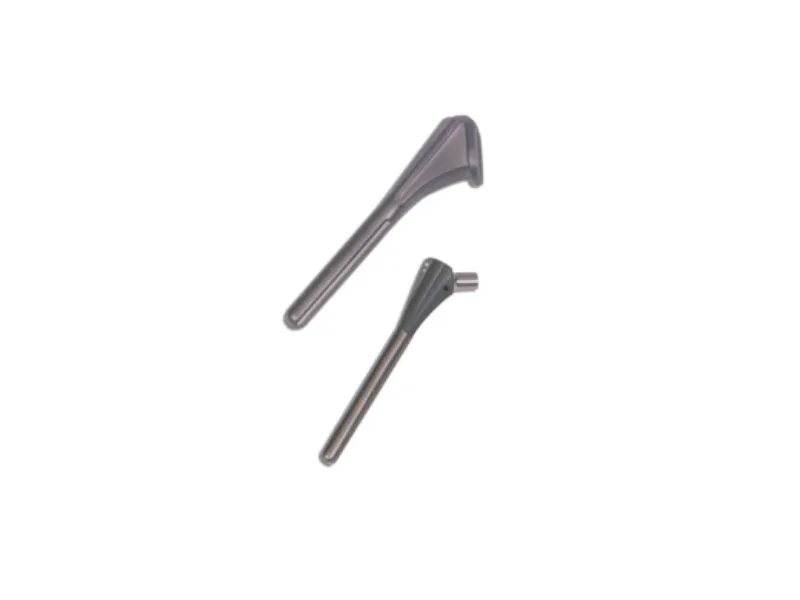
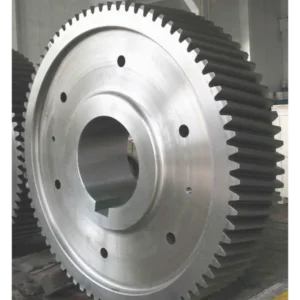
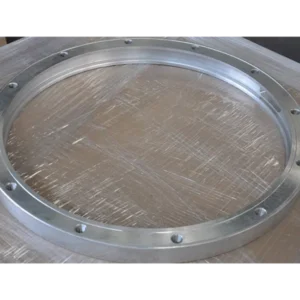
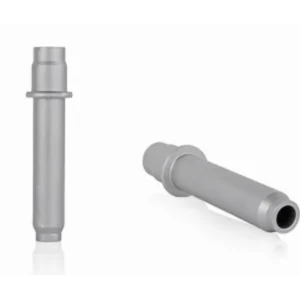
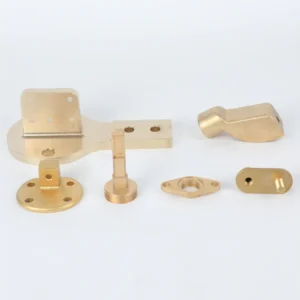

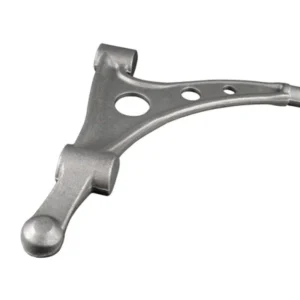
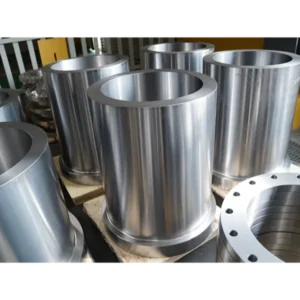
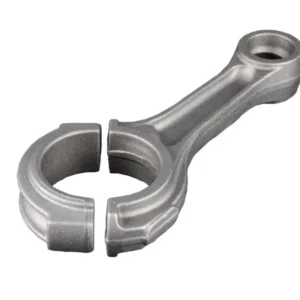
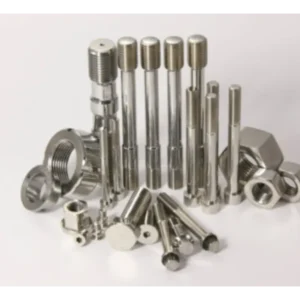
Reviews
There are no reviews yet.